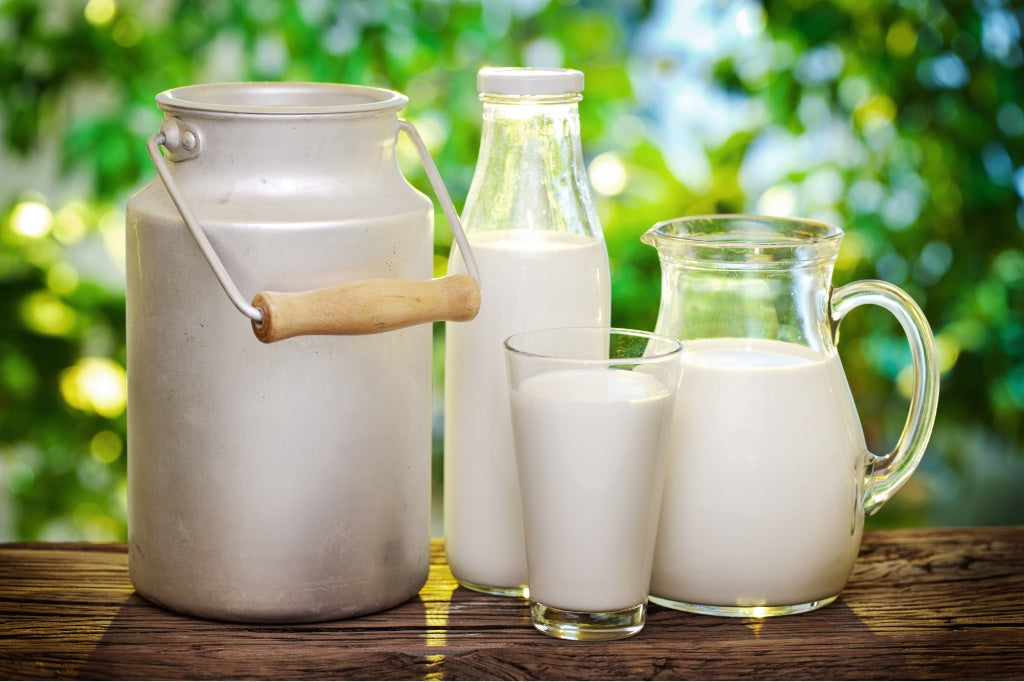Is conventional milk bad for kids?
Posted by Cathy Doe on August 18, 2014 (0 Comments)

About 15 years ago, Food Network had a great show called Cooking Live, and it featured Sara Moulton, who was then the executive chef at Gourmet magazine, cooking a meal live on television while she fielded phone calls from viewers. One of the things Sara said as she cooked was that she made sure her kids drank organic milk, and that it was the one organic food she was a stickler about.
Back then, organic milk wasn't nearly as widely available as it is now. But its current ubiquitous presence is proof that a lot of people feel the same way now as Sara did back then.
But is organic milk really better for children, and if so, why?
To start, here are the differences between organic and conventional milk:
rBGH - rBGH stands for recombinant bovine growth hormone. rBGH is a synthetic hormone used by dairy farmers to increase milk production in cows. rBGH has been shown to increase infections in cows, and may increase the risk of cancer in humans. The use of rBGH has been banned in the European Union, Canada, Japan, Australia, and New Zealand. rBGH may not be given to organic cows.
Antibiotics - Conventional cows are commonly treated with antibiotics and returned to their herd as soon as they test antibiotic-free. However, there may be antibiotics in the milk from conventional cows. Organic cows who are treated with antibiotics may not rejoin their herd until 12 months after they are certified as antibiotic-free. There is concern that frequently treating cows with antibiotics that are also used to treat humans may impair treatment in humans if the bacteria become immune to the antibiotic due to its use in cows.
Pesticides - Conventional cows may consume feed that has been treated with pesticides, and their milk may contain some pesticide residue. The feed given to organic cows cannot be treated with pesticides.
Pasture Feeding - Organic cows are required to be put out to pasture during the entire grazing season. Conventional cows are not required to have access to pasture. Some experts believe that milk from pasture-fed cows contain more healthy fats like omega-3 fatty acids than their non-pasture-fed counterparts. The differences outlined above mean that unlike conventional dairy milk, organic milk is free of growth hormones, antibiotics and pesticides. Since the growing bodies of children may be more vulnerable to growth hormones, antibiotics and pesticides, organic milk may well be a better choice when compared to conventional milk. Additionally, their growing bodies can benefit from the healthy fats found in milk.
If the cost of organic milk is a deterrent, consider buying ultra-pasteurized milk that lasts longer (especially if spoilage is a concern), or switching your child to organic milk just some of the time. Also, keep an eye out for sales, as well as manager's specials, which usually mean the milk will expire soon (but milk can be frozen).
Finally, organic milk is arguably better for the environment as well as people. Organic farming does not use toxic synthetic pesticides or fertilizers, so these chemicals do not contaminate soil or water in the production of organic milk.




Comments (0 Comments)
Post Comment